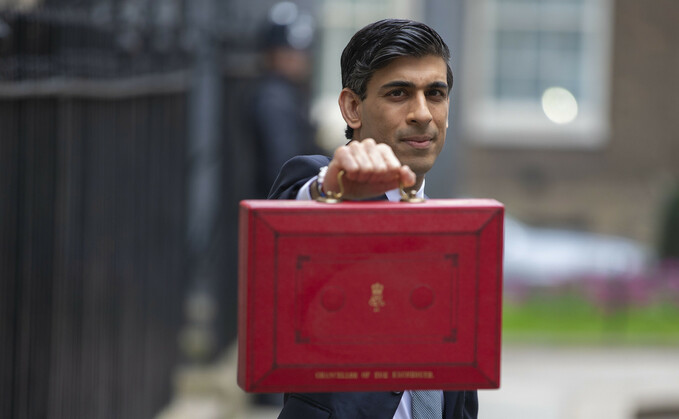
Rishi Sunak will present his Autumn Budget on 27 October. Photo: HM Treasury/Flickr CC BY-NC-ND 2.0
The government should not make any fundamental changes to pensions tax relief as part of its Autumn Budget on 27 October, the Pensions and Lifetime Savings Association (PLSA) says.
The trade body said that, during the past year, there has been much speculation that the government may be looking at reforming pensions tax relief - potentially using such reform as a source of additional revenue in light of the financial pressures that have arisen during the Covid-19 pandemic.
The PLSA said it does not believe now is the right time for a fundamental reform of pensions tax relief - warning that many people are not saving enough for their retirement and tax relief acts as an important incentive to help people save.
It added that, should the government choose to introduce a reform, it should look to the PLSA's Five Principles for Pensions Taxation and to consult extensively to avoid unintended consequences.
The PLSA's five principles are that any reform should: promote adequacy; encourage the right behaviours; be fair to all; be simple to adopt and administer; and be enduring and sustainable.
The trade body added that its overall assessment continued to suggest that "no single reform or the current system is perfect". It said most reform options would leave many people with lower pension savings and create very substantial cost and complexity for employers and occupational pension schemes.
The PLSA also urged the government to consider three other policy areas as part of the budge
Tax relief for low earners
The PLSA said the net pay and relief at source (RAS) anomaly is an ongoing tax administration issue that results in approximately 1.5 million lower earners in net pay schemes missing out on pensions tax relief.
It said it continues to believe that a central solution - the so-called P800 process, operated by HM Revenue & Customs - would deliver the sort of comprehensive, efficient, cost-effective solution it believes is necessary and require no further engagement from savers.
Responsible investment
As part of the Productive Finance Working Group, the PLSA has been in discussion with government about overcoming the structural and practical hurdles to investing in illiquid assets.
It said it hopes to improve the availability and so broaden the range of investible products available to trustees but would like the government to keep an "open dialogue with the pensions industry" as to how schemes can best support the government's agenda on this issue.
The working group yesterday put out its own paper with four recommendations on how to improve defined contribution scheme access to illiquid markets.
Continued support for AE
The PLSA said the government should increase auto-enrolment (AE) contributions to 12% of salary over the course of the 2020s and that consideration be given to moving to a 50:50 employer/saver split to ensure that pension saving remains affordable for both savers and employers.
As a first step, the PLSA has asked government to introduce legislation to follow through on the recommendations in the 2017 AE review by extending AE to workers between 18 and 21 and removing the lower earnings limit so that people start saving from the first pound of earning.








